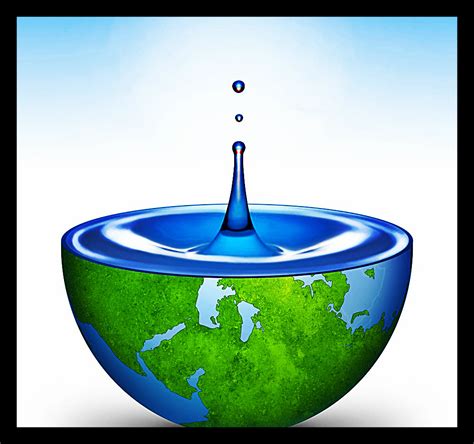Water, the elixir of life, plays an indispensable role in sustaining life on Earth and driving countless industries. Its remarkable properties are not just essential for our survival but also hold immense potential for scientific breakthroughs and technological advancements. Here’s an exploration of three extraordinary properties of water that make it the foundation of life and a source of endless inspiration.

1. The Universal Solvent: A Molecular Matchmaker
Water’s exceptional ability to dissolve a vast array of substances has earned it the title of the “universal solvent.” This property stems from its unique molecular structure, consisting of two polar hydrogen atoms and one negatively charged oxygen atom. This molecular configuration allows water molecules to form hydrogen bonds with other molecules, breaking them apart and dissolving them.
The “universal solvency” of water has profound implications. It enables us to dissolve and transport nutrients, chemicals, and ions throughout our bodies. In industrial settings, it facilitates the extraction and purification of substances, forming the basis of countless chemical processes.
Applications:
– Separation and purification of chemicals
– Medical formulations, such as saline solutions
– Detergent production
– Wastewater treatment
– Food and beverage processing
2. Cohesion and Adhesion: The Bonds that Shape Nature
Water’s cohesive and adhesive properties are responsible for a wide range of phenomena observed in nature and engineering. Cohesion refers to the attraction of water molecules to one another, while adhesion describes their attraction to other surfaces.
These forces are responsible for the formation of surface tension, which gives water its characteristic shape and allows it to support objects such as water striders. Cohesion also contributes to the formation of droplets and capillary action, enabling water to move upward through thin tubes and porous materials.
Applications:
– Irrigation and water transportation
– Paint and ink production
– Surface modification for medical devices and biomedical applications
– Microfluidics and lab-on-a-chip devices
3. High Heat Capacity: The Thermal Buffer
Water’s high heat capacity, the amount of energy required to raise its temperature by one degree, is essential for regulating the Earth’s climate and maintaining the stability of biological systems.
Water absorbs and releases heat slowly, acting as a thermal buffer. This property prevents large temperature fluctuations in oceans, lakes, and rivers, ensuring the survival of aquatic life. In our bodies, water helps maintain a constant temperature, critical for metabolic processes.
Applications:
– Thermal energy storage for heating and cooling systems
– Power plant cooling
– Geothermal energy utilization
– Wastewater treatment
Common Mistakes to Avoid
To fully harness the potential of water’s properties, it’s essential to avoid common mistakes:
- Overuse of Chemicals: Excessive use of chemicals in water systems can disrupt its natural balance and harm aquatic life.
- Water Conservation Neglect: Ignoring water conservation measures can lead to water scarcity and environmental damage.
- Improper Wastewater Treatment: Inadequate wastewater treatment poses serious threats to public health and water quality.
Pros and Cons
Pros:
– Essential for life and human activities
– Solvent for a wide range of substances
– Regulates temperature and climate
– Readily available and renewable
Cons:
– Can transmit diseases if contaminated
– Erosive force if not properly managed
– Limited supply in certain regions
Frequently Asked Questions
1. What causes water’s universal solvency?
Water’s polar molecular structure and ability to form hydrogen bonds allow it to dissolve a vast range of substances.
2. How does water’s cohesion affect plant growth?
Cohesion enables water to move upward through plant stems, providing them with nutrients and hydration.
3. Why is water’s high heat capacity important?
Water’s high heat capacity helps regulate the Earth’s climate and maintain the stability of biological systems.
4. What is a common mistake to avoid in wastewater treatment?
Inadequate wastewater treatment can result in water contamination and harm aquatic life.
5. Can water be used as an energy source?
Yes, water can be used for hydropower and geothermal energy utilization.
6. How many water molecules are there in a glass of water?
Approximately 1.4 x 10^24 water molecules.
Conclusion
Water’s extraordinary properties are not simply essential for our survival but also provide boundless opportunities for innovation and problem-solving. By understanding and harnessing these properties, we can develop sustainable technologies, address environmental challenges, and unlock new frontiers in science. The enchantment of water lies in its versatility, its ability to adapt to different environments, and its potential to fuel our imagination. As we recognize and appreciate water’s inherent power, we embrace the responsibility to conserve and protect this precious resource for generations to come.
